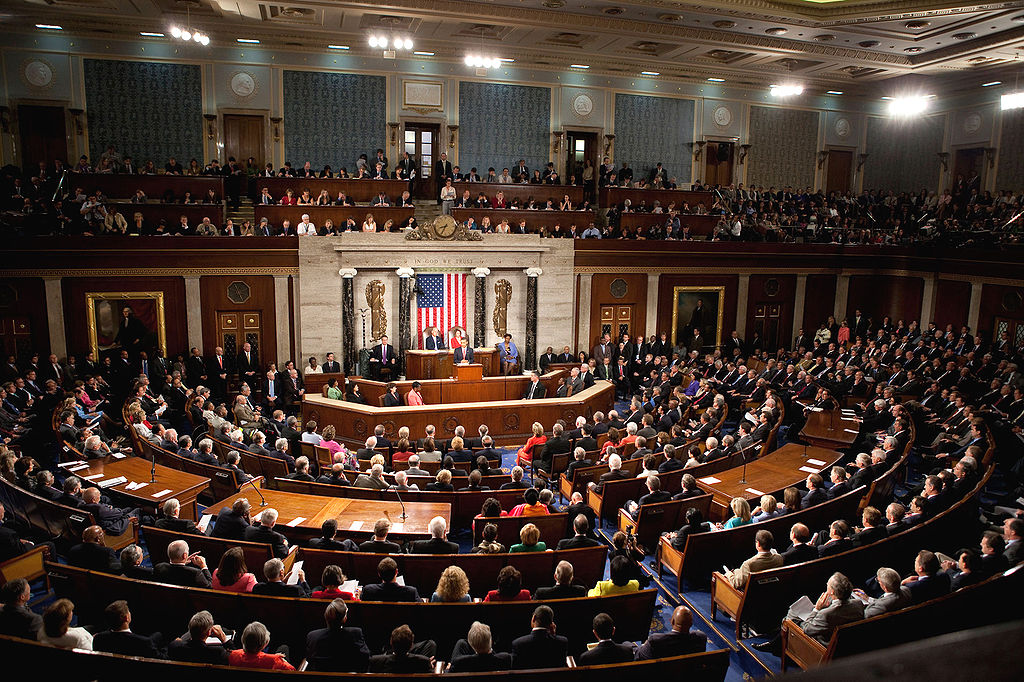
Just as anticipated, the Democratic Party won control over the House, and the Republican Party retained control of the Senate in the US midterm elections. This outcome will have a far-reaching impact on US policy, especially on the China-US relationship.
First, the elections further revealed the nearly “insurmountable division” in American society. On almost all issues, the two sides see the other side’s policy as utterly unacceptable, accusing each other of doing “irreparable damage” to the US.
Second, according to initial statistics, about 120 million voters – or over 50% – participated in the midterm elections. Such high voter turnout is extremely rare in US midterm elections, and is comparable with presidential elections. Yet more than 40% of voters casted “rage votes”. Polls show that over 40% of voters cast their ballots essentially to prevent the other party’s candidates from winning. The string of President Donald Trump’s scandals, his extreme right-wing and populist policy approach, the ruthless partisan in-fighting between the Democrats and Republicans, and the controversy over the nomination of Brett Kavanaugh as Supreme Court judge, enraged voters on both sides, which in turn pushed them to the ballots. However, all these “rage votes” reflect voters’ political identification rather than their policy preferences. The latter reflects conflict of interests, i.e. differences over “what we want,” which can be resolved via compromise. But just as Fukuyama pointed out, political identification is all about one’s values and ideology. This is all about “who we are,” over which it is difficult, if not entirely impossible for the two sides to compromise. This is why we have witnessed the seemingly irreconcilable division between the Democratic and Republican Parties, as well as their voters, throughout the midterm elections.
Third, both Democrats and Republicans claimed victory. For the Democrats, regaining control of the House after an eight-year interval means that they again hold the upper hand in the policymaking process on Capital Hill. However, the Democrats lost 54 seats in the midterms under Bill Clinton, and 63 under Barack Obama. The Republicans lost only 35 seats this time, and won three more in the Senate, enlarging their majority. In comparison, Trump’s claim that the Republican Party has achieved an “historic success” under his leadership is not an overstatement.
Obviously, for US politics, the significance of this midterm election season lies in the fact that both the Democrats and Republicans have mobilized their forces and examined their strength in this high-voter-turnout contest. Given that the two sides are essentially even, with irreconcilable differences in policymaking, it is unlikely that the Democrats will be able to impeach Trump, even with its control over the House (actually they can’t even build the case). But they will surely create substantial hurtles for the Trump administration in the policy making processes. In return, the latter will also be even more right-wing and conservative, and attribute all policy problems to the former’s partisan disruptions. Such fierce and destructive partisan rivalry will lead to a chaotic and uncertain situation in US policymaking till the end of the 2020 president elections, and its economy will suffer accordingly.
However, the Trump administration will remain tough, if not tougher, on foreign policy, especially towards China. This is not just because the US president wields greater power in foreign affairs. More importantly, being tough against China has become the lowest common denominator in US politics. The so-called “bipartisan consensus” against China has been reached in the US establishment because taking a hard stance against China is the high ground of political correctness that must be occupied in the fierce infighting between the two parties. Moreover, seeing China as an overall threat to US security also helps both the Democratic and Republican establishments to keep their rivalry under control on the one hand and make necessary compromise to advance true US interests on the other. Thus, it would not be surprising that the more severe partisan politics becomes in the US, the tougher the Trump administration’s China policy will be.
The present US-China relationship is essentially defined by internal politics in both countries and shaped by the balance (or the lack of it) achieved among interest groups at home. As such, the country that has a stronger and more effective leadership at home will hold the initiative in the bilateral relationship between the two powers. With such a new “normal” in US-China relations, the biggest and most fundamental challenge facing the bilateral relationship is not from the other side’s being “tough”, but their respective internal problems at home that can be solved only through in-depth reforms and readjustments. The “strategic competition” between China and the US is essentially one over solutions, or at least effective management, of problems at home. The one who can overcome the challenges at home sooner will set the course of China-US relations, and world development at large.
